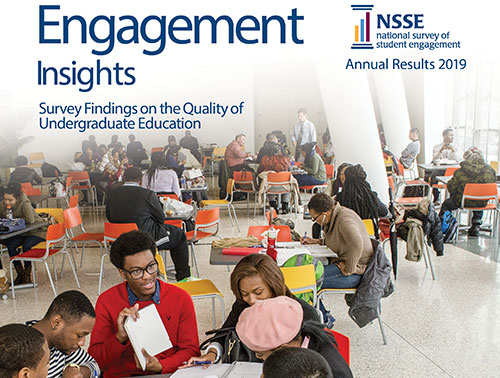
First, some good news. Student engagement has improved over time. Efforts to improve the quality of higher education between 2004 and 2019 have reaped gains in first-year student interactions with faculty, time spent on academic preparation, and perceptions of the campus environment, according to NSSE’s Engagement Insights: Survey Findings on the Quality of Undergraduate Education—Annual Results 2019, released in February, along with a brief digest of the results.
Quality beats quantity in academic advising. We also found that the quality of academic advising is more important than the frequency in first-year student perceptions of support for academic success, use of learning support services, and interactions with faculty. Even more, first-year students who experienced high-quality advising had twice as much interaction with faculty and were much more likely to express an intention to return to the same institution the following year.
Another study found that persistence had the strongest positive correlations with Quality of Interactions and Supportive Environment, two of NSSE’s Engagement Indicators. Students who persisted also spent more time preparing for class and were more likely to report their institution emphasized spending significant amounts of time on academic work.
These findings, along with additional insights from the Faculty Survey of Student Engagement (FSSE), related examples of institutional data use, and a summary of students’ participation in High-Impact Practices can be found in Annual Results 2019.

